How Stephen King Inspired One Buffy Supervillain
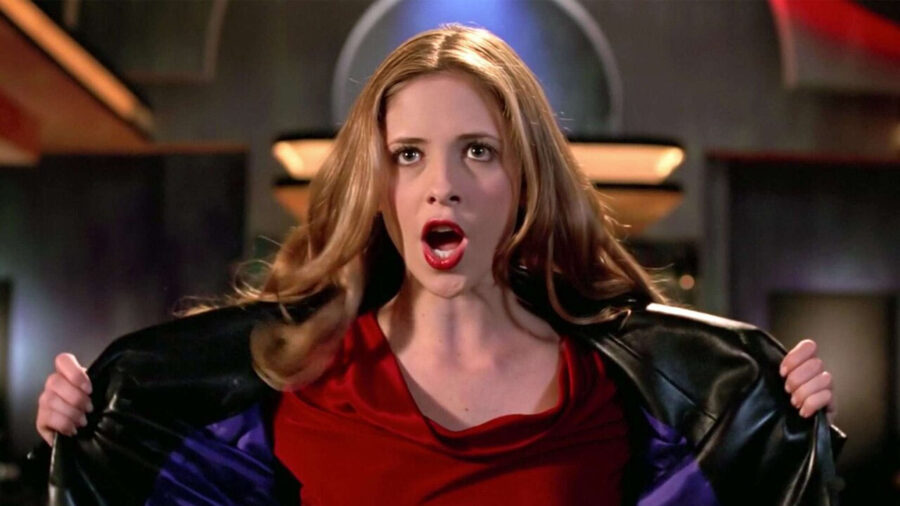
Any Buffy the Vampire Slayer fan will tell you that the iconic series often drew inspiration from unlikely sources. The show beloved for its blend of camp, charm, and complex characters even took influence from Stephen King.
In a Q&A on Reddit, former Buffy actress Clare Kramer revealed that King’s masterpiece, The Shining was the inspiration for Glorificus, otherwise known as Glory. Jack Nicholson’s performance in Stanley Kubrick’s version of The Shining heavily influenced Glory’s character.
“I tapped into that sense of freedom, as well as based the character a bit on Jack Nicholas’ character.”
Clare Kramer
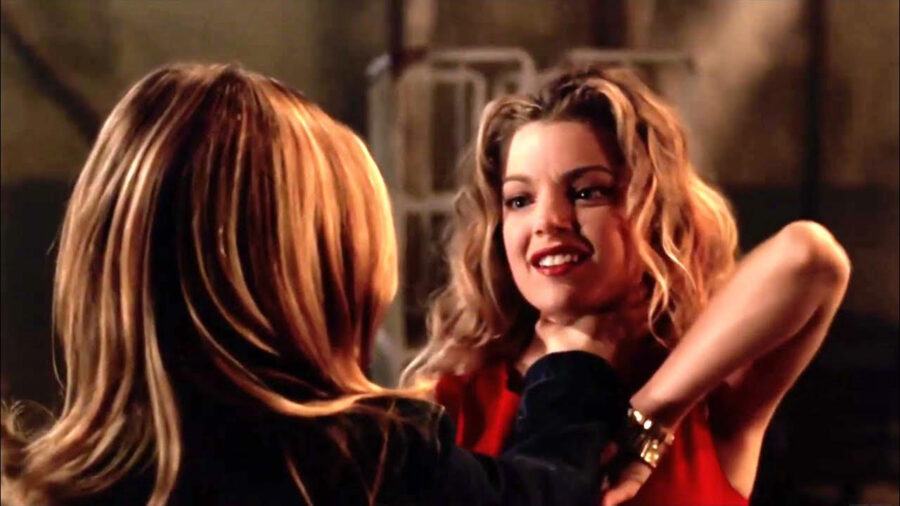
Although not among his Oscar winners, Nicholson’s portrayal remains iconic for its terrifying brilliance. His depiction of an unhinged off-season caretaker, driven insane in a haunted hotel, clearly inspired the creatives behind Buffy. Hence Glory’s combination of dramatic nuance and sheer terror.
Indeed, Glory exhibited complex multidimensionality.
As a scorned hell god forced to dwell on Earth (within Ben, her human vessel, a caring doctor), her dual existence forged a fascinating interplay of strength and vulnerability. Like Stephen King’s caretaker veering conflictedly between trying to axe-murder his family and protect them—between endlessly typing “All work and no play makes Jack a dull boy” or writing a novel—Buffy’s Glory is split down the middle.
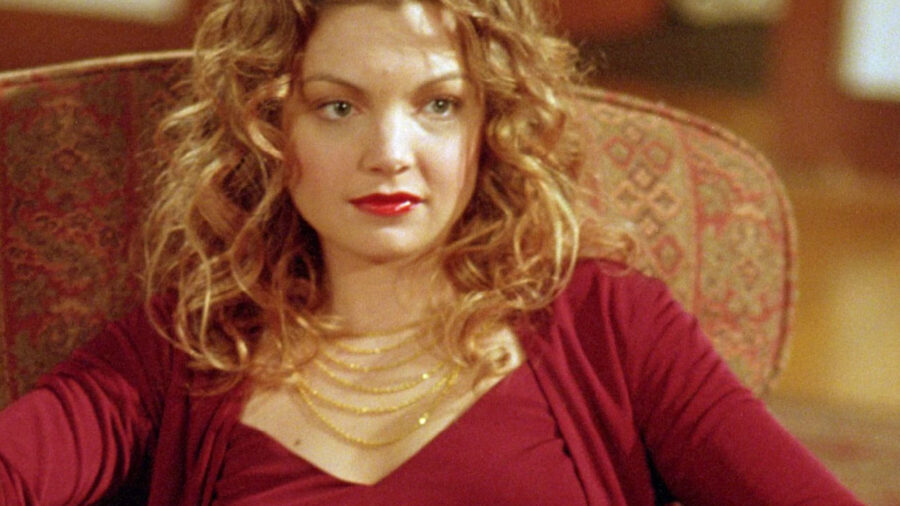
Sure, she needs to feast on human brains to retain sanity, but she also struggles to navigate the emotional tumult of human existence via her human host.
This combination of menacing horror and human relatability mirrors the psychological unraveling endured by Nicholson’s character.
Glory’s experience of the world is also marked by frustration and isolation. She is, after all, confined to a world alien to her and forced into torments comparable to those suffered by Jack Torrence, Nicholson’s character.
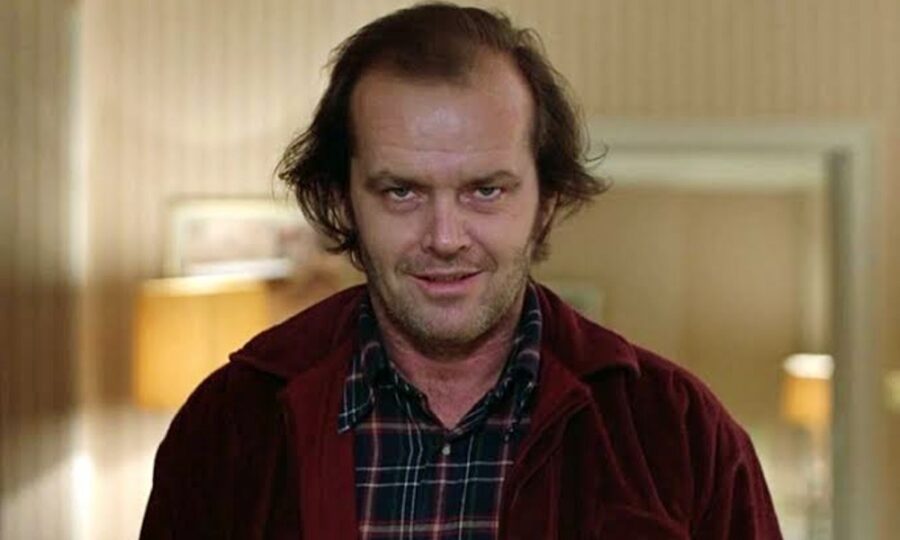
We primarily remember Nicholson’s brilliant realization of Stephen King’s character due to the former’s acting genius; the same can be said of Glory in Buffy, whom Clare Kramer so effectively played.
Kramer’s talent explains Glory’s vivid and disturbing rawness. In the series’ fifth season, Kramer compellingly depicted the singular drive and obsessive determination behind Glory’s aching to return to her own dimension.
Through Glory, Kramer accessed dark recesses of the human psyche not dissimilar from those demonstrated by Nicholson’s character in The Shining. Kramer relished throwing herself into embracing Glory’s inhumanity and lack of social constraints–and it shows.
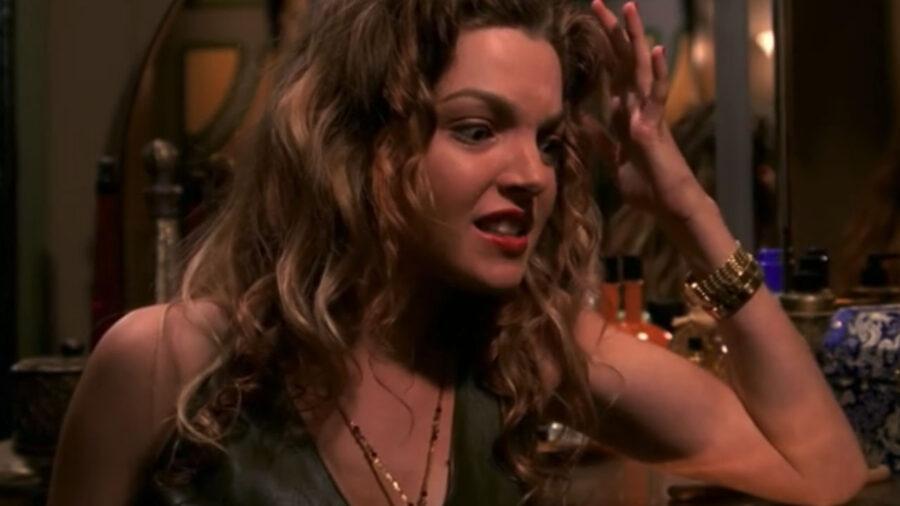
The end product, Glory, was a disturbingly effective highlight of the horror show. And Kramer’s disturbing performance proved liberating and refreshing for the actress.
In The Shining, Stephen King’s caretaker tossed all social constraints to the wind and reveled in his madness; inspired by this, so did Glory in Buffy—whose maniacal mission to forge a path to her home dimension took precedence over any frivolities like human decency.
Indeed, Glory’s quest is characterized by her ongoing struggle against the human conscience of her host, Ben. This battle entails instances of vulnerability and instability. These hiccups—this weakness in her quest for the key—parallel the mental disintegration of Jack Torrence.
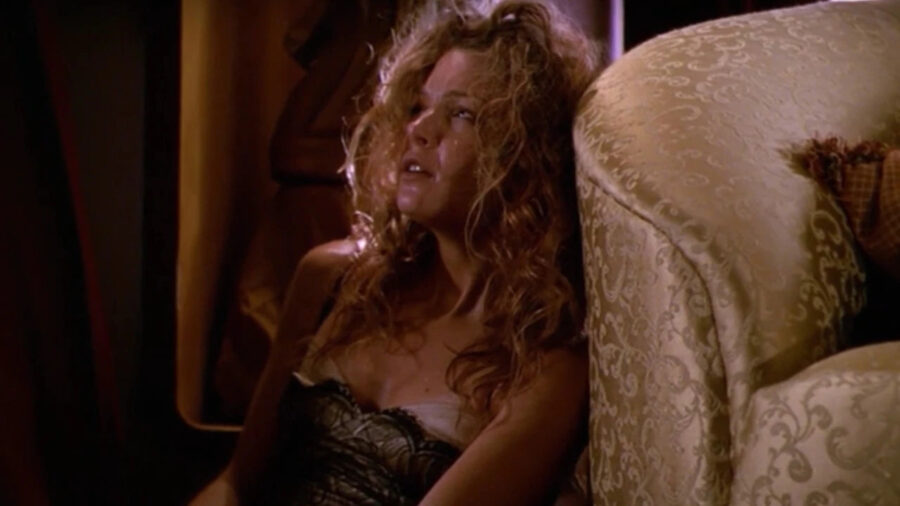
Despite their different universes, each character battles demons, both external and internal.
Ultimately, their shared penchant for dramatic entrances tops the list of striking similarities. When Glory bursts through doors in her impactful debut, axe or no axe, it’s a direct homage to the unforgettable “Here’s Johnny!” scene from The Shining.
In other words, Stephen King’s Jack Torrence burst through one door, so Buffy’s Glory could burst through another. It all makes for some scary stuff.
Source: Clare Kramer












